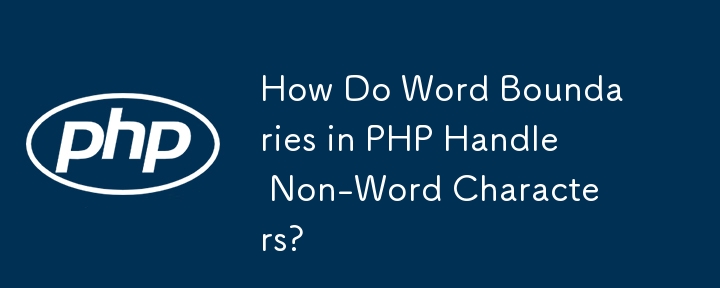

Unveiling the Mysteries of Regular Expression Word Boundaries in PHP
When utilizing regular expressions to locate specific words within text, it's often desirable to impose constraints on whether the specified word marks the beginning or conclusion of a word unit. However, some unexpected behaviors may arise when attempting to implement this using word boundaries.
Consider the following regular expression:
preg_match("/(^|\b)@nimal/i", "something@nimal", $match);We anticipate that the match will fail since the grouping expression will consume the "@" symbol, leaving "nimal" to match against "@nimal," which it should not. However, in this example, the grouping expression matches an empty string, allowing "@nimal" to match, implying that "@" is treated as part of the word.
To unravel this mystery, it's crucial to understand how word boundaries in PHP are determined. A word boundary (b) represents a transition point between a word character (w) and a non-word character (W). To match a word that must start at the beginning of a word, an additional word character must precede the expected word.
Thus, in the first example:
something@nimal
^^Matching succeeds because there's a word boundary between the letter "g" and the "@" symbol. However, in the second instance:
something!@nimal
^^ Matching fails because the "!" and "@" symbols are both non-word characters, creating no word boundary. To remedy this, you may employ the following regular expression:
preg_match("/g\b!@\bn/i", "something!@nimal", $match);This expression requires a word character before "@" and a word character after "@," ensuring that it only matches when "@" appears within a word.
The above is the detailed content of How Do Word Boundaries in PHP Handle Non-Word Characters?. For more information, please follow other related articles on the PHP Chinese website!




